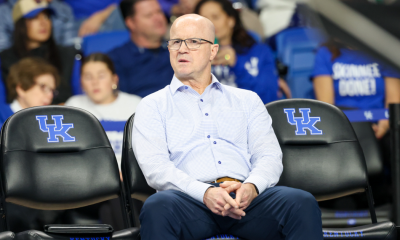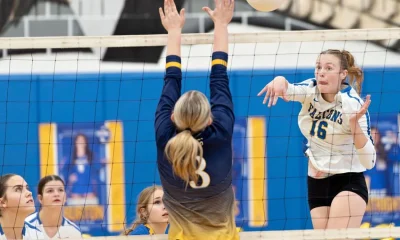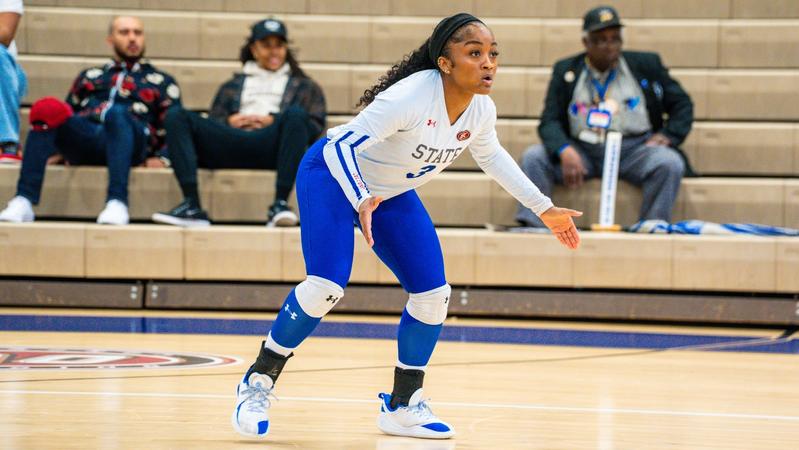NIL
Sustainability and sport



Project researchers also carried out an on-site environmental impact analysis of the Zurich Weltklasse athletics meeting in 2022, which that year served as the Wanda Diamond League final. Results from that assessment appeared in the report, ‘Guidelines on Decarbonisation Practices for Athletics, Biathlon and Floorball’, published in August 2023.World Athletics played a leading role is several of the project’s key milestones. One was a Life Cycle Assessment (LCA) calculation of the environmental impact of the 2023 World Mountain and Trail Running Championships hosted by the Austrian cities of Innsbruck and Stubai.
Another important legacy of the project was the creation of an interactive database of sustainability best practices for sports events.
– to develop training modules to improve environmental knowledge;
The governance and management model analysis also played an active role in refining the Athletics for a Better World Standard, the system World Athletics implemented across all owned and licensed athletics events in January 2024 that evaluates, measures and scores an event’s achievement in sustainable delivery.
– to support the sports with strategic objectives, programmes and operational frameworks
The GAMES Project (Green Approaches in Management for Enhancing Sports), a unique multi-sport collaboration exploring how sports can improve and promote environmental sustainability practices at their events, marked its successful conclusion in March.
Ramsak, along with Tero Kalsta of the IFF and Riikka Rakic of the IBU, co-authored a chapter on environmental governancen in the sports sector in the book, ‘Integrity and Sustainability in Sport’, published in January 2025. The GAMES final report will be published on the project’s website in early April.
World Athletics Head of Sustainability Bob Ramsak also participated in two project conferences, its mid-term gathering hosted by the IBU in Oslo in February 2024 and at its final event in Malmö, Sweden in December, held on the sidelines of the 2024 Men’s World Floorball Championships, where he shared and discussed World Athletics sustainability initiatives.
The project launched in June 2022, with five key objectives:
– to leverage the popularity of the sports to broadly increase environmental awareness; and
The work was led by a team of researchers from the Sant’Anna School of Advanced Studies in Pisa, who coordinated the project.
The 30-month European Commission Erasmus+ funded initiative brought together four sport organisations – World Athletics, the International Biathlon Union (IBU), the International Floorball Federation (IFF) and the Swedish Floorball Federation (SFF) – to explore how their respective sports can adopt more practices to mitigate their impact on climate change.
– to analyse the governance and management models used by the three sports and support the development of decarbonisation strategies for each partner.
– to raise awareness and increasing the adoption of climate change mitigation practices by key sports actors;
Other World Athletics initiatives associated with the project included ‘Building Collaborations for Sustainable Events’, a panel discussion hosted by Asics during the 2023 World Athletics Championships in Budapest; and ‘How to Promote Sustainability at Major Events’, a webinar focusing on the strong leadership commitment to sustainability by the organisers of the 2024 World Athletics Indoor Championships in Glasgow, the most-watched from the GAMES Project-produced series of webinars.
NIL
Latest Georgia transfer rumors could lead to another Carson Beck level disaster

Georgia football suffered arguably the biggest loss in the Transfer Portal last offseason. Former UGA quarterback Carson Beck made the shocking decision this time last year to transfer to Miami, and that was something that no one saw coming.
Georgia ended up being fine without him as they went on to win the SEC, but losing Beck at the time was not fun.
Fast forward to this offseason and rumors are beginning to swirl of another departure that would be just as shocking and impactful as Beck.
Nate Frazier rumors are the last thing Georgia needs
One of Georgia’s best players this season was running back Nate Frazier. There were countless games where he put the team on his back and helped carry them to victory, and his success this past season has led to everyone at Georgia being excited for what’s to come next season.
Frazier however has not publicly announced that he will be back at Georgia next year and rumors are circulating that he could enter the Transfer Portal.
It’s impossible to state how big of a loss this would be for Georgia. Frazier finished the season just shy of 1,000 yards as he racked up 947 yards and six touchdowns on 173 carries. He also had dominant showings in a few games as well, most notably when he ran for 181 yards against Mississippi State. He was set to have an even bigger season next year as a junior, but that may not be occurring at Georgia anymore.
Frazier hasn’t entered the Transfer Portal yet, but it sounds like there is a chance he does. And if he does it Ohio State could be the team he lands with.
Kirby Smart and his staff have to do everything they can to keep Frazier in Athens. Georgia does have Chauncey Bowens who will return to their backfield for another season, but he can’t do it alone. He needs Frazier with him so Georgia can have one of the best running back duos in the country.
But there is a chance that doesn’t happen next season, and losing Frazier would feel a lot like losing Beck last year.
NIL
Ty Simpson Reportedly Getting NIL Contract Offers After NFL Draft Decision, New Rumors on Alabama QB

Ty Simpson has declared for the 2026 NFL Draft, but that hasn’t curbed college football programs from trying to get the Alabama quarterback on their roster.
According to AL.com’s Nick Kelly, Simpson has been offered “a deal that could total $6.5 million” from one program, while three SEC teams have offered “at least $4 million and more.”
Simpson was the No. 26 overall player and No. 4 quarterback in the class of 2022, according to 247Sports’ composite rankings. He’s a bit of a rare breed in today’s college football landscape in the fact that he waited three years at Alabama before becoming the starter, rather than transferring somewhere else.
Simpson played behind Bryce Young in 2022 and Jalen Milroe in 2023 and 2024 before eventually landing the starting job in 2025. While he had a few shaky outings, he was one of the best quarterbacks in the SEC this year, throwing for 3,567 yards, 28 touchdowns and five interceptions
His final game with the Crimson Tide came in the College Football Playoff quarterfinal against Indiana, where he threw for just 67 yards in a 38-3 blowout loss.
Bleacher Report’s NFL Scouting Department considers Simpson to be the No. 30 overall player and the No. 3 quarterback in this year’s draft class. In the latest mock draft from B/R, Simpson is projected to land with the Los Angeles Rams with the No. 13 pick.
While Simpson is widely projected to be a first-round pick, the NFL combine should give him a good idea of where he might land in April. Assuming he’s a consensus first-round pick, it’s hard to imagine Simpson will return to the collegiate level.
If he isn’t so confident about going in the first round, perhaps he’ll take one of the lucrative NIL offers he’s reportedly received.
NIL
Tennessee football offered Alabama quarterback Ty Simpson $4 million
Jan. 11, 2026Updated Jan. 12, 2026, 1:12 a.m. ET
Quarterback Ty Simpson may be headed to the NFL, but it’s not because he didn’t have suitors in college football.
Simpson, who started for Alabama during the 2025 season, declared for the 2026 NFL Draft on Jan. 7.
A source close to Simpson told The Tuscaloosa News on Jan. 11 that Miami offered him $6.5 million to play for the Hurricanes in 2026. That would have made him the highest-paid player in college football.
Tennessee and Ole Miss each offered Simpson $4 million, the newspaper reported through the same source.
Simpson is a Tennessee native from Martin, where he won a TSSAA state championship his senior season at Westview in West Tennessee.
Simpson’s base salary at Alabama was $400,000, the newspaper reported. That doubled to $800,000 with incentives.
Simpson has not entered the NCAA transfer portal and has not yet signed his NFL paperwork. However, he plans to play in the Senior Bowl later this month in Mobile, Alabama, according to the newspaper.
Simpson played all four seasons for the Crimson Tide, but did not start until 2025, when he threw for 3,567 yards and had 28 touchdowns and five interceptions. He helped Alabama reach the College Football Playoff quarterfinals, where it lost to Indiana in the Rose Bowl.
NIL
Ty Simpson “not wavering” on decision to turn pro amid NIL bidding war

Alabama quarterback Ty Simpson announced last week that he was leaving school early to enter the NFL draft. But that hasn’t stopped other college programs from offering him lucrative NIL deals.
What started out in the $4 million range has reached in excess of $6 million, a source with knowledge of the situation told Bama247.
But that same source said the offers were unsolicited and that Simpson “hasn’t wavered” in his decision to enter the NFL draft. The expectation is he will not change his mind before the Wednesday deadline for underclassmen to declare.
Al.com was first to report the unrelenting interest in Simpson as the draft deadline approaches.
Simpson went 11-4 in his lone season as the starter, leading Alabama to the College Football Playoff and a come-from-behind victory at Oklahoma in the first round. But his season ended on a sour note as he threw for only 67 yards and no touchdowns in a 38-3 loss to Indiana in the Rose Bowl that saw him sidelined for much of the second half with a rib injury.
Simpson, who was named a team captain in the summer, finished the season with 3,567 passing yards, 28 passing touchdowns and five interceptions. He also ran for 93 yards and two scores.
Recent NFL mock drafts have had Simpson ranked among the top three quarterbacks — behind Indiana’s Fernando Mendoza and Oregon’s Dante Moore — and a borderline first-round pick.
Alabama 2026 NFL draft decision tracker: Who will stay in school or enter draft?
With Simpson gone, Mack and Russell are the two most experienced quarterbacks on the roster. The two were listed as co-backups this season with Mack having a 62-to-36 edge in total offensive snap over Russell.
Both Mack and Russell resigned with Alabama last week.
NIL
The Ohio State football program is in Transfer Portal crisis thanks to Ross Bjork

When Ohio State made the decision to hire Ross Bjork as athletic director once Gene Smith stepped down, a large reason was that he was supposed to be an expert in the NIL space. Bjork touted his ability to galvanize donors and pay the athletes what they rightly deserved.
The end of his tenure at Texas A&M did see the football program spend a lot of money on recruits. It backfired spectacularly. Jimbo Fisher did not coach the team well, and Bjork had to fire him and pay him around $77 million to not coach the program.
Since coming to Columbus, Bjork has used the opposite approach. He has been borderline stingy at every corner when it comes to NIL for the Ohio State football program. Instead of helping the Buckeyes, he is actively sinking the ship just a year after winning a national title.
Ross Bjork is actively hurting the Ohio State football program
30 players have entered the Transfer Portal from this year’s version of the Ohio State Buckeyes. That is by far the most since the portal became a widely used thing. What’s even worse is that Bjork has refused to pay enough to bring enough players in to replace those guys leaving.
There have been several instances of the Buckeyes losing out on talented portal players because they did not use their NIL money correctly. Bjork seems to think that the College Sports Commission is actually going to be able to enforce any sort of cap when it comes to revenue sharing.
No other high-major program is operating under those assumptions. In fact, most of Ohio State’s competitors keep reloading in the portal. Indiana is arguably passing the Buckeyes when it comes to finding talented older players in the portal, and that’s why they are playing for a national title.
Bjork was a questionable hire when he was brought in. The shine has worn off from the 2024 national championship, and more people are realizing that the title was won in spite of him, not because of him. Ryan Day needs to start putting his foot down when it comes to the football program.
NIL
No. 1 portal WR Cam Coleman commits to Texas

After some marquee portal losses, the Texas Longhorns needed to add elite talent to the wide receiver room and did just that with the addition of Auburn Tigers transfer Cam Coleman over the Alabama Crimson Tide, Texas A&M Aggies, and Texas Tech Red Raiders.
Coleman is one of the crown jewels of the portal class, the No. 4 player overall and the No. 1 wide receiver and five spots ahead of the next-best offensive player — former Alabama wide receiver Isaiah Horton. The elite wideout made the most of his second recruiting cycle, but traveled to Austin first before trips to College Station, Lubbock, and Tuscaloosa. He’s ranked as a five-star portal prospect after arriving at Auburn two years ago as a five-star high school prospect, the second-ranked wide receiver behind Ohio State’s Jeremiah Smith.
In two years at Auburn, the 6’3, 200-pound wideout emerged as one of the nation’s most explosive targets despite the Tigers struggling to find consistency at quarterback. In two seasons, he accounted for 1,306 yards and 13 touchdowns catching passes from Peyton Thorne, Jackson Arnold, and Ashton Daniels. The hope for both Texas fans and Coleman is that putting him with a quarterback who specializes in the deep ball, like Arch Manning, will both open up the Texas offense and set him up for a one-year springboard on the Forty Acres.
This plan has worked wonders for Texas in previous years, with Matthew Golden and Adonai Mitchell putting up big numbers in Burnt Orange and hearing their names called early in the NFL Draft.
Texas was likely heading to the portal in the offseason regardless, but the departures of DeAndre Moore and Parker Livingstone made it a true necessity for the Longhorns. The Longhorns have bolstered the skill position talent on offense with the additions of Coleman and former Arizona State running back Raleek Brown.
-

 Sports3 weeks ago
Sports3 weeks agoBadgers news: Wisconsin lands 2nd commitment from transfer portal
-

 Rec Sports1 week ago
Rec Sports1 week agoFive Youth Sports Trends We’re Watching in 2026
-

 Sports3 weeks ago
Sports3 weeks agoKentucky VB adds an All-American honorable mention, loses Brooke Bultema to portal
-

 Motorsports3 weeks ago
Motorsports3 weeks agoDr. Patrick Staropoli Lands Full-Time O’Reilly Ride with Big Machine Racing
-
NIL2 weeks ago
Fifty years after IU’s undefeated champs … a Rose Bowl
-

 Motorsports2 weeks ago
Motorsports2 weeks agoBangShift.com IHRA Acquires Historic Memphis Motorsports Park In Millington Tennessee. Big Race Weekend’s Planned For 2026!
-

 Sports3 weeks ago
Sports3 weeks agoColorado volleyball poised to repeat success
-

 Sports2 weeks ago
Sports2 weeks ago2025 Volleyball Player of the Year: Witherow makes big impact on Central program | Nvdaily
-

 Sports2 weeks ago
Sports2 weeks agoH.S. INDOOR TRACK & FIELD: GLOW region athletes face off at Nazareth University | Sports
-

 Sports3 weeks ago
Sports3 weeks agoTexas A&M volleyball’s sweep of Kentucky attracts record viewership






























































